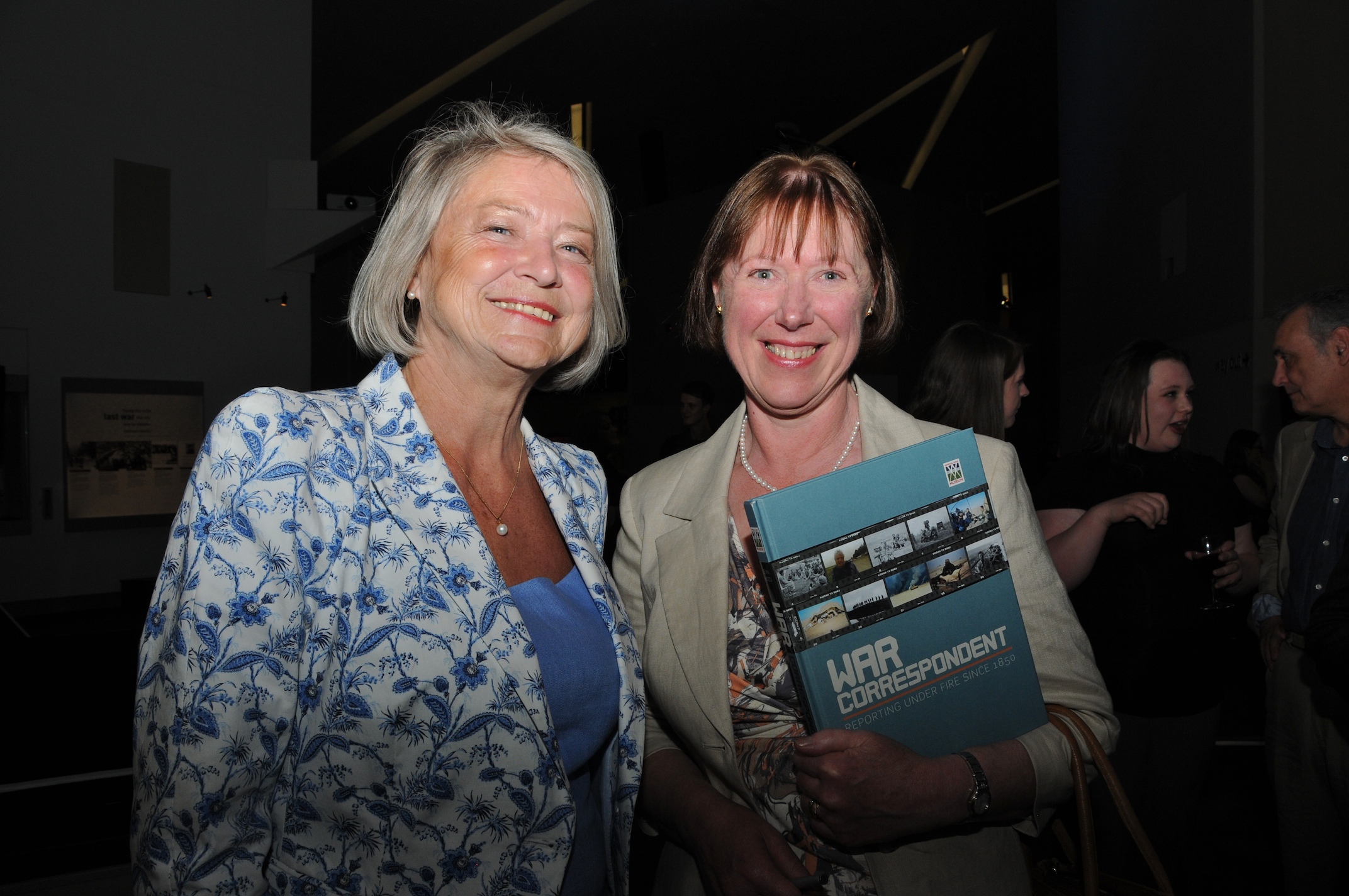
|
| With Kate Adie at the launch of the Exhibition in May 2011 |
War
correspondents regard war very much as a doctor regards sickness. I don't suppose that a doctor is actually glad that
people are sick, but so long as sickness exists in the world he feels that he might as well get the benefit of it. It is the
same with war correspondents. They do not wish anyone to be killed on their account, but so long as men are going to be killed
anyway, they want to be on hand to witness the killing and, through the newspapers, to tell the world about it.
E Alexander Powell, US War Correspondent “The Fighting
in Flanders”, 1915
Because of my interest in the human aspects of war, I was
thrilled to be given the opportunity to write War Correspondent, to accompany the Imperial War Museum’s exhibition
of the same name which ran from 28 May 2011 until 2 January, 2012 at IWM North, Salford. The book has a
broader scope that the exhibition, beginning with William Russell ,who reported from the Crimea in 1854, and
embracing more of the foreign war correspondents, primarily those from the USA, because
I wanted to create a book that would do more than simply replicate exhibition content, particularly given that some of the
exhibition content consisted of video interviews and actual objects, which would not have the same impact when turned into
still photographs and transcripts.
Some of the material in the book
is pretty grim. If anyone thinks that there is anything romantic about being a war correspondent, please read any of the following,
spanning the better part of a century between them:
Philip Gibbs: The Soul of the War
Rene
Cutforth: Cry Korea
Anthony Loyd; My War Gone By, I Miss It So
Ian Stewart: Ambushed
Just after the book went to press, Tim Hetherington was killed on the front
line in Misrata, Libya, a reminder, if any were needed, that being a war correspondent is a dangerous job. 22nd February 2012 - Marie Colvin of the Sunday Times and French photographer
Remi Ochlik were killed today in Syria as the Syran forces bombarded the rebel-held town of Homs and scrored a direct hit
on their house. From her report the previous evening it seemed all too possible that she would not get out alive.
|

